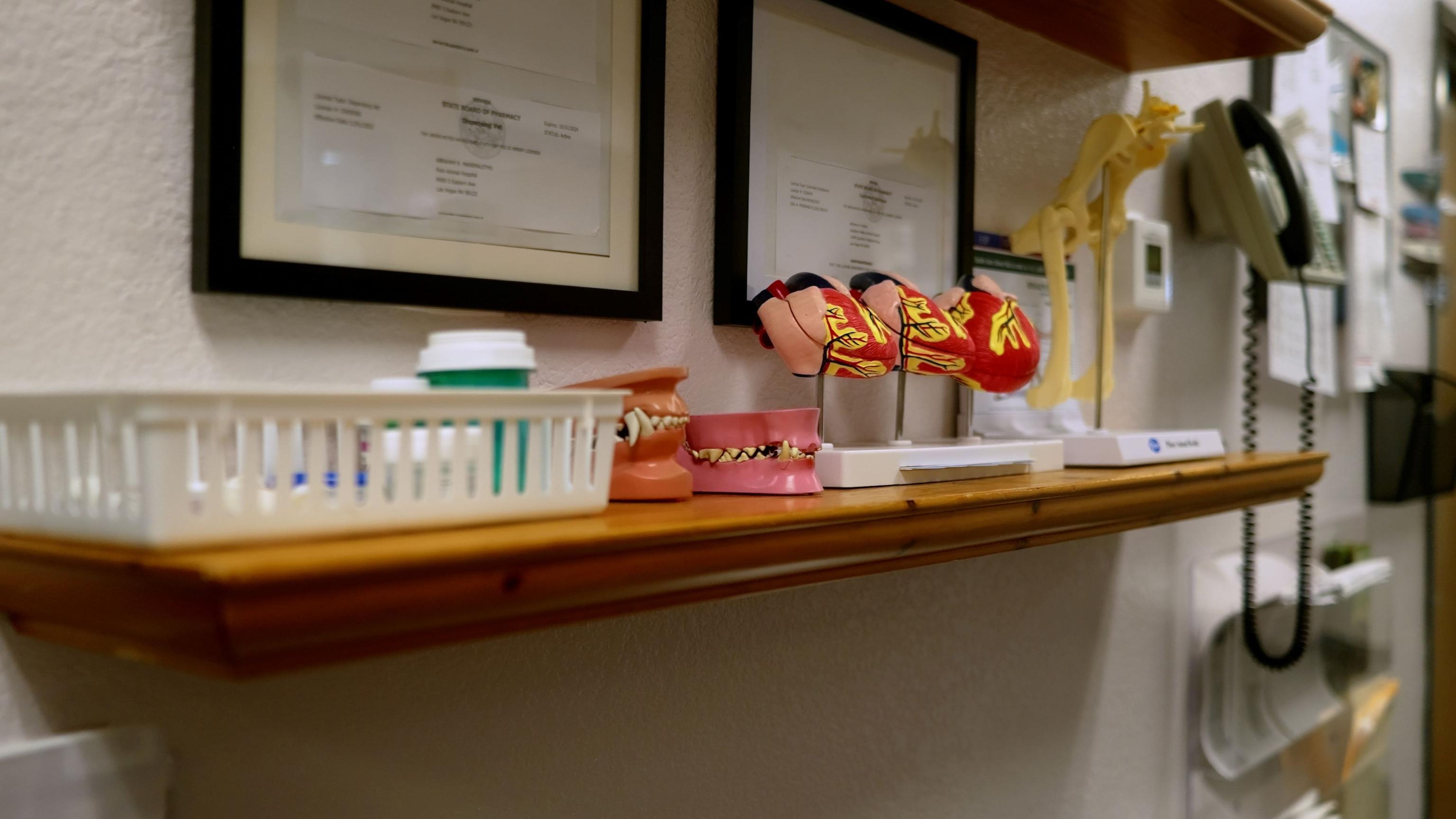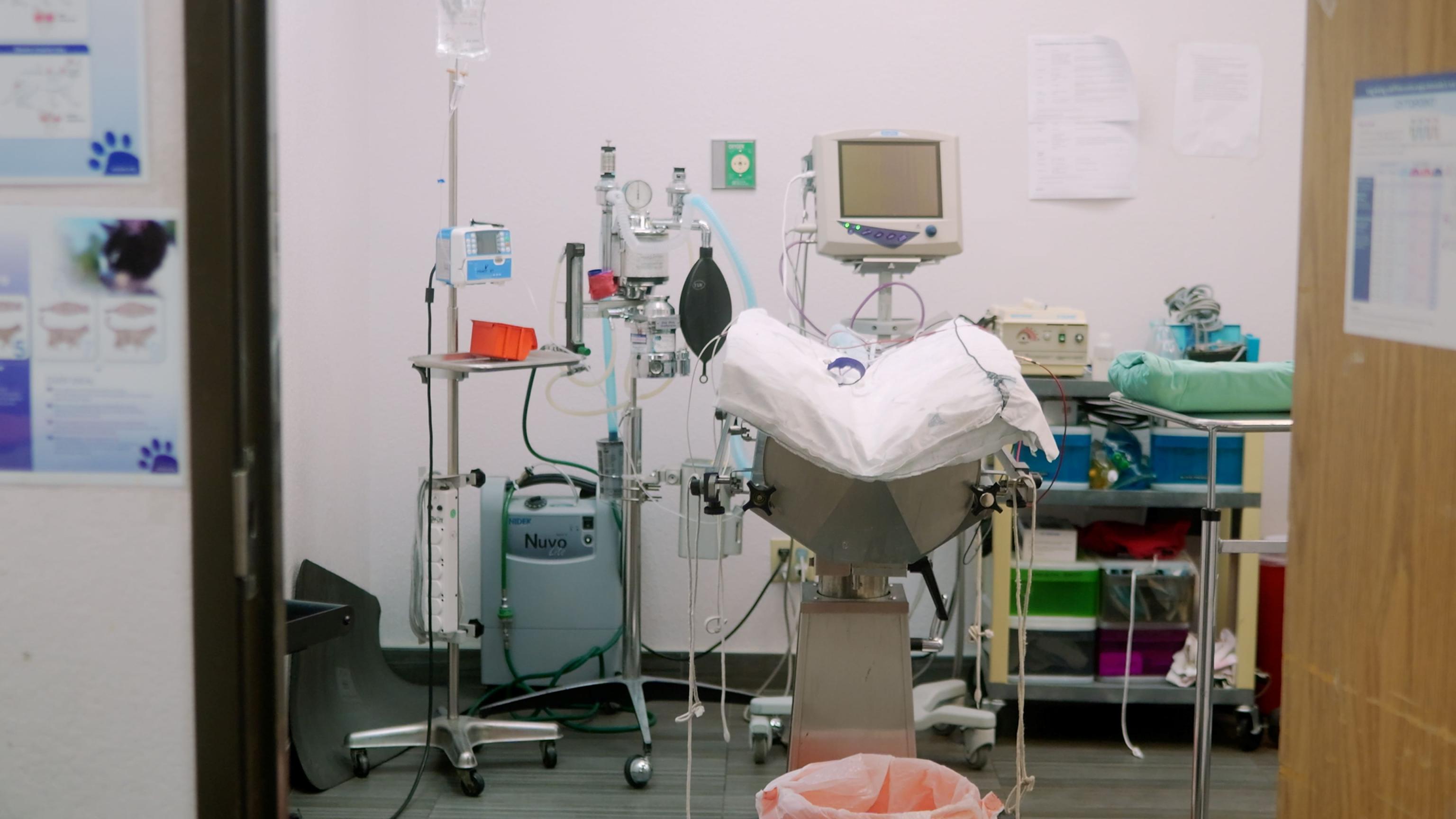Let Our Veterinary Preventative Care Keep Your Pets Healthy in Las Vegas and Henderson, NV!
You may have heard the saying, “An ounce of prevention is worth a pound of cure.” Well, we always want to prevent the onset of any ailment in our pets whenever possible. Since our pets can’t tell us they don’t feel well or are hurting, it is up to us to know predispositions and any subtle signs of changes.
Providing the proper preventative care includes knowing information about the following:
Family History
Knowing of any genetic abnormalities can aide us in appropriate management of your pets’ health.
Breed Predispositions
Many animals carry breed-specific challenges, such as the Shar Pei being prone to dermatology concerns, or the Dachshund breeds facing neurological issues. Our knowledgeable veterinarians know the signs and best treatments to alleviate your pet’s suffering sooner and get your precious loved one healthy again.
Spaying
 This prevents pregnancy and the complications that arise from pregnancy and delivery. Eliminates the heat cycle – you won’t have to deal with your female trying to get out and find a mate—and prevents unwelcome males from trying to seek out your female in heat.
This prevents pregnancy and the complications that arise from pregnancy and delivery. Eliminates the heat cycle – you won’t have to deal with your female trying to get out and find a mate—and prevents unwelcome males from trying to seek out your female in heat.
It reduces the urge to roam. This makes it less likely that you will lose your pet, which makes your pet less likely to contract a disease, get in a fight, become injured, or become a victim of cruelty, poison, or traffic.
Spaying aids in the prevention of Mammary Tumors, and also reduces or eliminates the possibility of disease in the reproductive system, including Pyometra, which is an infection in the uterus. Infection in the lining of the uterus occurs because of hormonal changes. Fever, lethargy, anorexia, and depression may or may not be present. If the cervix is closed, pus is not able to drain. It collects in the uterus causing distention. The bacteria release toxins that are absorbed into circulation. These dogs can become severely ill very quickly. They are anorectic, listless, and very depressed. Vomiting or diarrhea may be present.
Neutering
Behavioral Advantages:
Decreased aggression and roaming. Neutered dogs tend to be less aggressive towards other dogs and humans, and they will not roam when they sense a female in heat.
Male dogs can sense a female in heat through pheromones. These are airborne chemical attractants that are emitted from the female when she is in heat. They can travel great distances.
It also adds to an increased concentration – if neutered, males will be much better students with a longer attention span when there are females nearby that are in heat. He will not be constantly distracted by pheromonal stimuli.
Medical Advantages:
The medical advantages are numerous and even more significant than the behavioral advantages. The effects of testosterone on the body or the physical problems that arise within the testicles themselves are the main cause of these problems.
No Testicular Tumors
These usually do not occur until the animal reaches five or more years of age, and so tumors can be avoided if the animal is neutered at the recommended age.
Hernias
A Hernia is a protrusion of an organ or parts of an organ through the wall that normally contains it. Perianal hernias occur when the colon, bladder, prostate, or fat protrude from the abdominal cavity through the muscular wall by the anus, and then lie just under the skin. This type of hernia is more common in older, unneutered male dogs. Left untreated, these organs may become damaged, unable to function, or even die from loss of blood supply.
Perianal Tumors
These are tumors that are stimulated by testosterone. These occur near the anus. As with hernias, these usually don’t occur until the dog is at least 7 years old. These tumors require surgical treatment.
Fewer Prostate Problems
Over 80% of all unneutered male dogs develop prostate disease. Prostate conditions such as benign enlargement, cysts, and infection are all related to the presence of testosterone.
Vaccines
A vaccination—or immunization—is a medical way of helping an animal protect itself against disease. When you vaccinate your pet, you make it immune, or resistant to diseases. A vaccine is a specific protein that stimulates the body to produce antibodies against a disease, which is also known as Active Immunity.
Puppies and kittens acquire these same antibodies from their mothers while nursing, which is known as Passive Immunity. These antibodies start to break down as the puppy/kitten approaches 6 to 8 weeks of age. At approximately 8 weeks, it is advised to begin administering the vaccines series, followed by regular yearly boosters.
It is critical to adhere to the timeframe for the vaccine series.
Weight
Not maintaining appropriate weight, either under or over, has adverse effects on your pet’s health. Food and exercise each play an important part in weight maintenance. Being underweight can present challenges on internal organs with long-term side effects. Being overweight or obese can put strain on the body as well as the internal organs, and can lead to diabetes as well as heart disease and stroke.
Let us work with you to develop a plan for your pet to achieve and maintain their appropriate weight. Quality pet foods for maintenance and special prescription diets are available here for your pet’s health.
Supplements
Age and injuries can slow our pets down prematurely. Numerous options can delay the onset of these inevitable symptoms. Please speak to your veterinarian to see if your pet is a candidate.
Call (702) 361-5850 to schedule your appointment!

